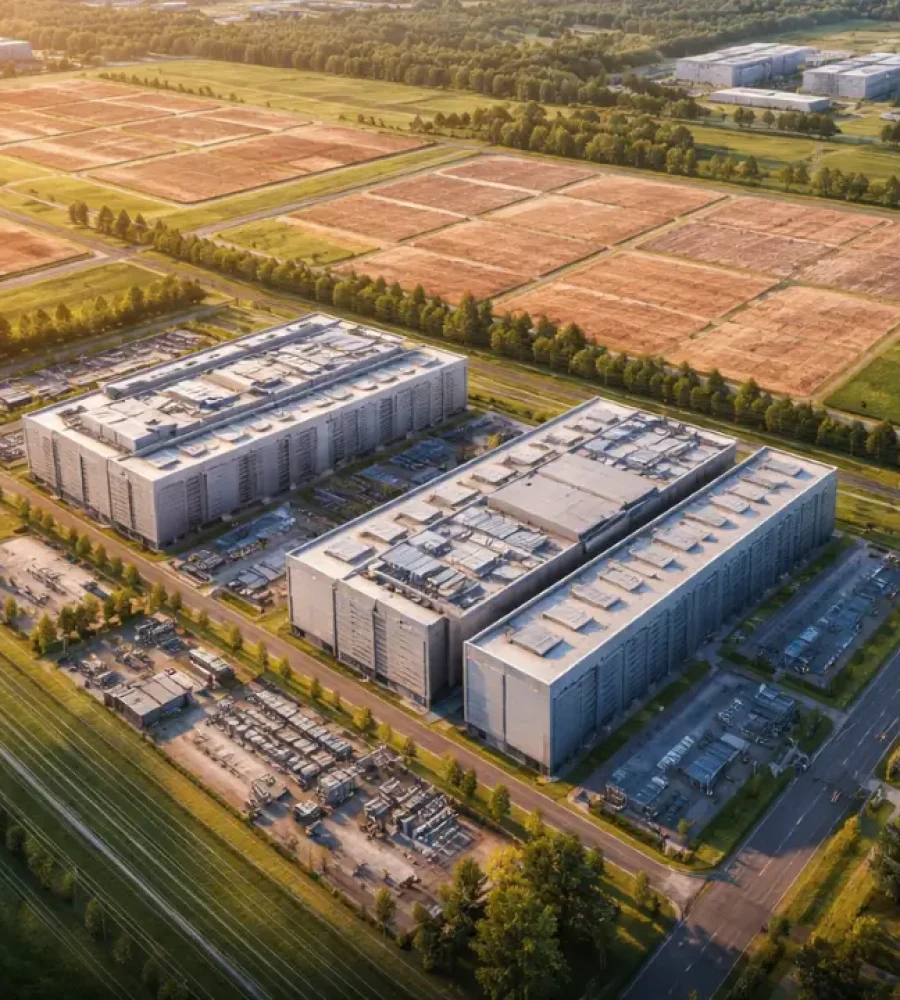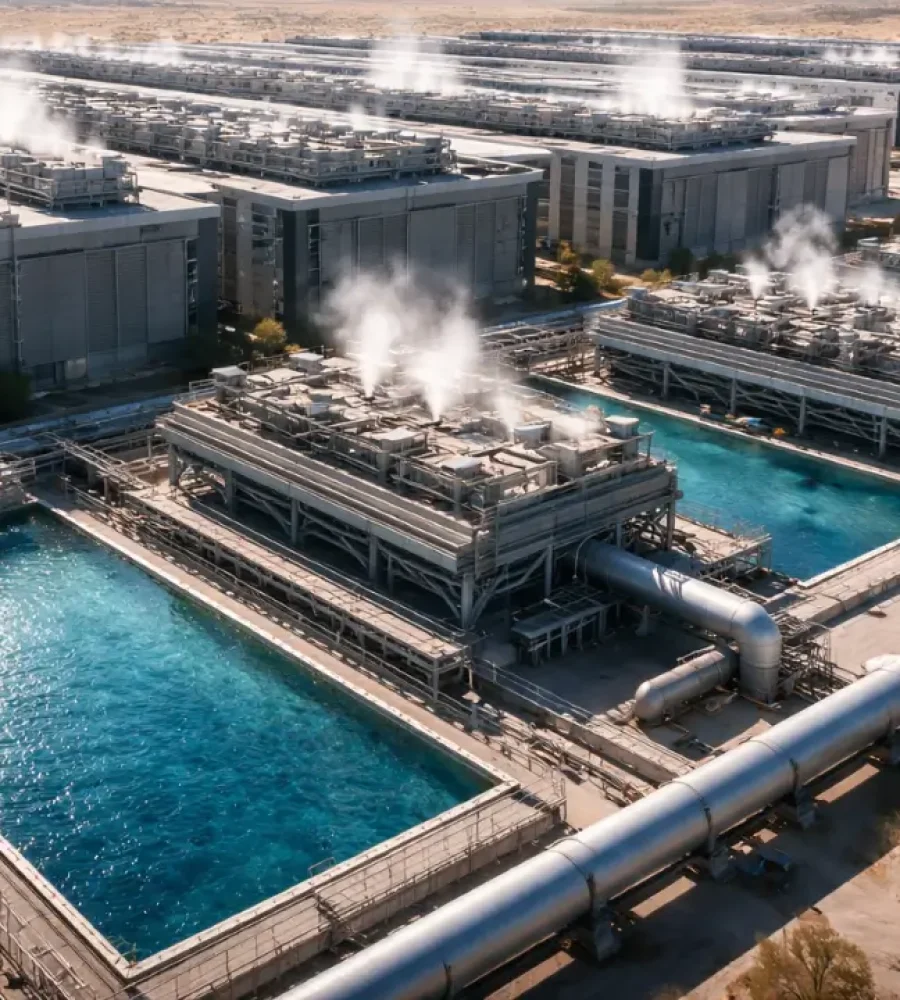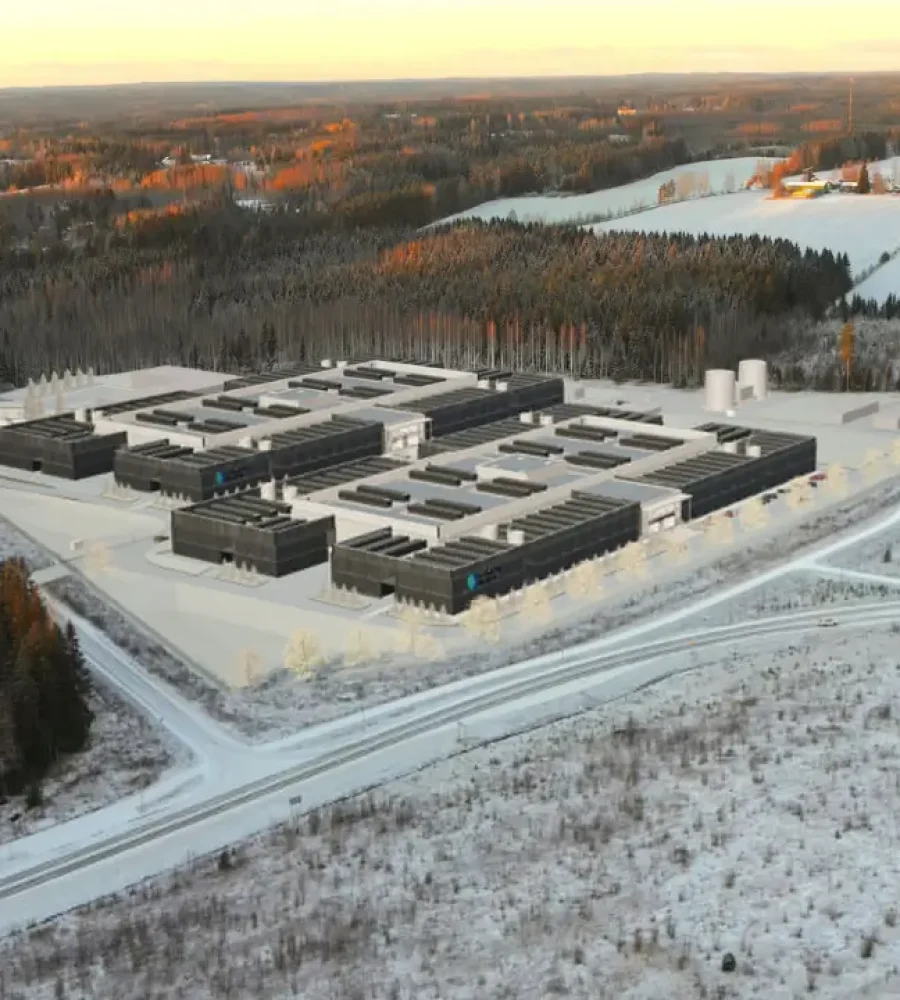BASX has designed and manufactured a customized free cooling chiller system for Applied Digital‘s AI factory in Ellendale, North Dakota, known as Polaris Forge 1. The system is purpose-built to meet the performance demands of AI infrastructure in a cold climate, while maximizing energy efficiency and sustainability.
Built to endure the harshest climates, the free cooling chiller system performs in three optimized modes, all with zero water use.
- Full Free Cooling: Rejects 100% of the IT load using only pumps and fans.
- Partial Free Cooling: Leverages ambient air to handle as much of the load as possible, supplementing with direct expansion (DX) cooling as needed.
- Full Mechanical Cooling: Engages compressors and coils to provide full DX capacity during peak ambient conditions.
“As a leading provider of AI factories, designed and built specifically to support NVIDIA liquid-cooled GPUs, innovation is a core component of our business. We presented a challenge to BASX to develop a highly efficient chiller to leverage North Dakota’s climate conditions and the demands presented by liquid-cooled servers and, as they are known to do, BASX engineered, designed, and built a world-class system that we are deploying at our Polaris Forge 1 site.” said Todd Gale, Chief Development Officer at Applied Digital.
“From the onset, this was about more than delivering standard HVAC — it was a collaboration between two teams determined to break away from cookie-cutter solutions,” said Matt Tobolski, PhD – AAON CEO & BASX Co-Founder. “Applied Digital brought us a clear challenge, and we responded with a system engineered from the ground up to meet it. We solve problems at the root and build for what’s next, not just what’s easy.”
AI factories like Polaris Forge 1 require 15 to 30 times the power density of traditional data centers, making conventional power and cooling strategies insufficient, according to a May 28, 2024, press release from Applied Digital. Meeting these demands requires infrastructure engineered from the ground up to support high-density, compute-intensive workloads.
As AI adoption accelerates, demand for high-efficiency cooling solutions continues to grow. Higher return fluid temperatures enabled by direct-to-chip cooling allow more heat to be rejected directly to ambient air, even in warmer conditions. This system demonstrates a scalable approach to thermal management, designed for operators who prioritize innovation, efficiency, and long-term sustainability.









